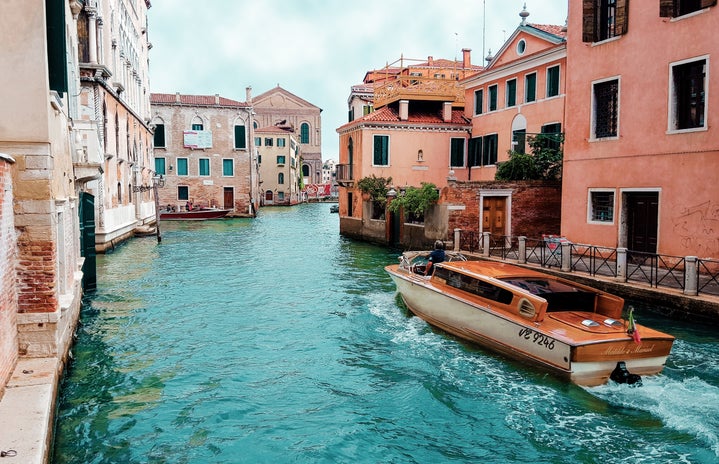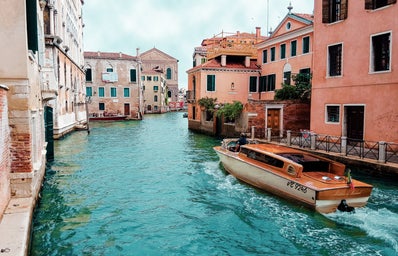The hollowed-out ravine of a once-great river is carved through the backyard of my family’s home in Southeastern Pennsylvania. If you hike back far enough rock formations at least suggest such, as does the plausible connection to the Big Elk Creek flowing two miles away. I consider when that great river may have dried as I sit on my back porch on March 21st, approximately a week after the University of Delaware evacuated all of us, students, due to the rapidly developing pandemic – COVID-19.
The world has changed dramatically in a short amount of time. Half of Earth’s population is in lockdown, bearing for the brunt of Coronavirus. Staying home, whether it’s forced or a mere suggestion has been detrimental to our global economy. I lost my job, my friends lost their jobs, the stock market seems to be in a 1929 freefall, and Americans are preparing for oncoming catastrophe by stocking up on toilet paper and Pop-Tarts.
After being bombarded with panic-inducing news, I decided to take a break. I turn my phone on airplane mode and hike to the Big Elk Creek two miles behind my family’s home. In times of crisis people generally turn to nature; in my case, this nature is the great American outdoors that for the past century has been deforested, polluted, and gradually neglected for the joys of the modern age. It’s a beautiful seventy degree day in mid-March following a season in which we had no snow for the first time in my twenty-two years of life. We’ve ravaged the natural barrier of protection and drowned the climate in pollutants, but interestingly enough now that Coronavirus is ravaging the human race nature has made headlines.
Today I saw a story that the waters flowing through Venetian canals are clear. About two years ago I was a tourist traipsing across the cobbled streets of the ancient city unknowingly contributing to the sickly, milk-like consistency of the waters. I took a gondola ride, and as I was being serenaded with the tune of “Oh Sole Mio” I noticed a hypodermic needle floating near the Piazza San Marco. Today, fish take to the boat-less waters.
NASA uploaded satellite images of China and Italy before and after being struck with the pandemic, pointing out visibly less air pollution over both nations in only a month. The satellites measure nitrogen dioxide – the primary pollutant produced by cars, power plants, and industrial facilities. Seven of the world’s ten most polluted cities are located in China, I can’t help but wonder if Coronavirus has impacted that statistic. Italy has been in lockdown since March 8th, China locked down on January 23rd. People are only being permitted to leave their home to grocery shop. No one is flying, no one is really leaving their town, all are encouraged to stay home unless absolutely necessary. As the world is slowly grinding to a halt, I am two miles behind my home so close to the Maryland and Delaware borders that I could walk there.
The impacts of Coronavirus will undoubtedly be catastrophic. At least hundreds of thousands around the world will die, our global GDP may be out trillions of dollars, and in a few months, we will be left to pick up the pieces of what was. However, our era of neglecting and harming the environment was what ushered us here to begin with. As humanity, we will need to be mindful of this when we rebuild. If a hillside is deforested, the village in the valley floods more often. The remedy to this is simple – plant more trees and give them the time to grow. With the people staying walled into their homes nature is coming back; remediating the holes that we tore away over the years. Coronavirus poured through these manmade holes in our environment, ushering in an unstoppable tide of infection. In order to return stronger than before we must allow nature to remediate the damage that was inflicted.
Today is April 5th of 2020. According to Johns Hopkins University, 1,237,046 (one million, 237 thousand 46) people have been infected with Coronavirus. 67,258 (67 thousand 258) people have already passed away. This number solely accounts for people who have been tested, experts believe that the total number of cases is exponentially higher.
The Big Elk Creek in my backyard has always run clear. Someday I will return to Venice. When I do, I hope that the waters still appear as crystalline as those I now gaze at two miles from the nearest road in the Big Elk Creek. Eventually, our society will emerge from their homes, and when that happens we must be mindful to not halt nature’s process of resurgence.




